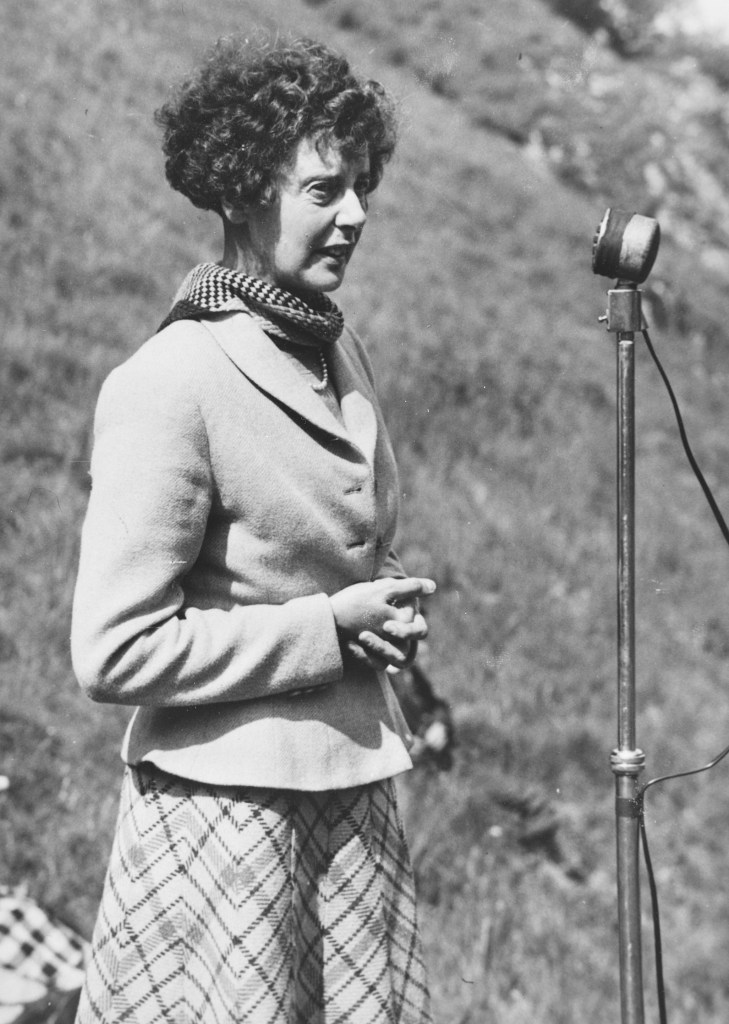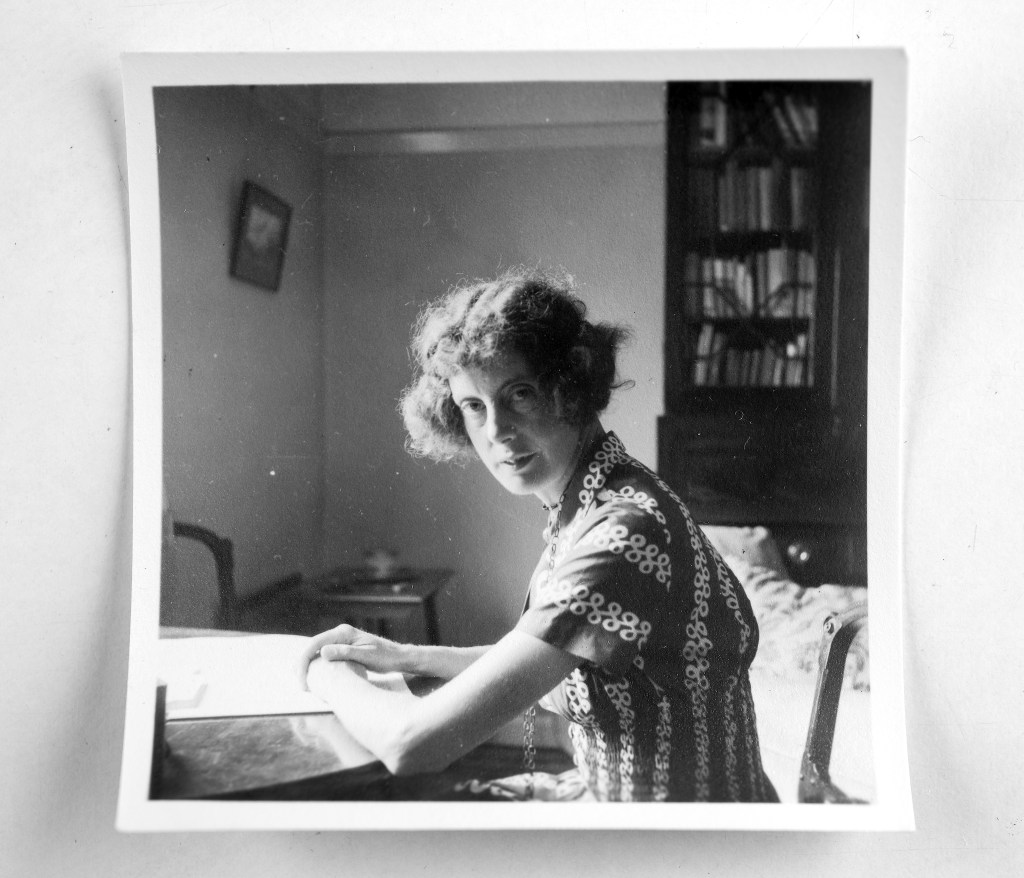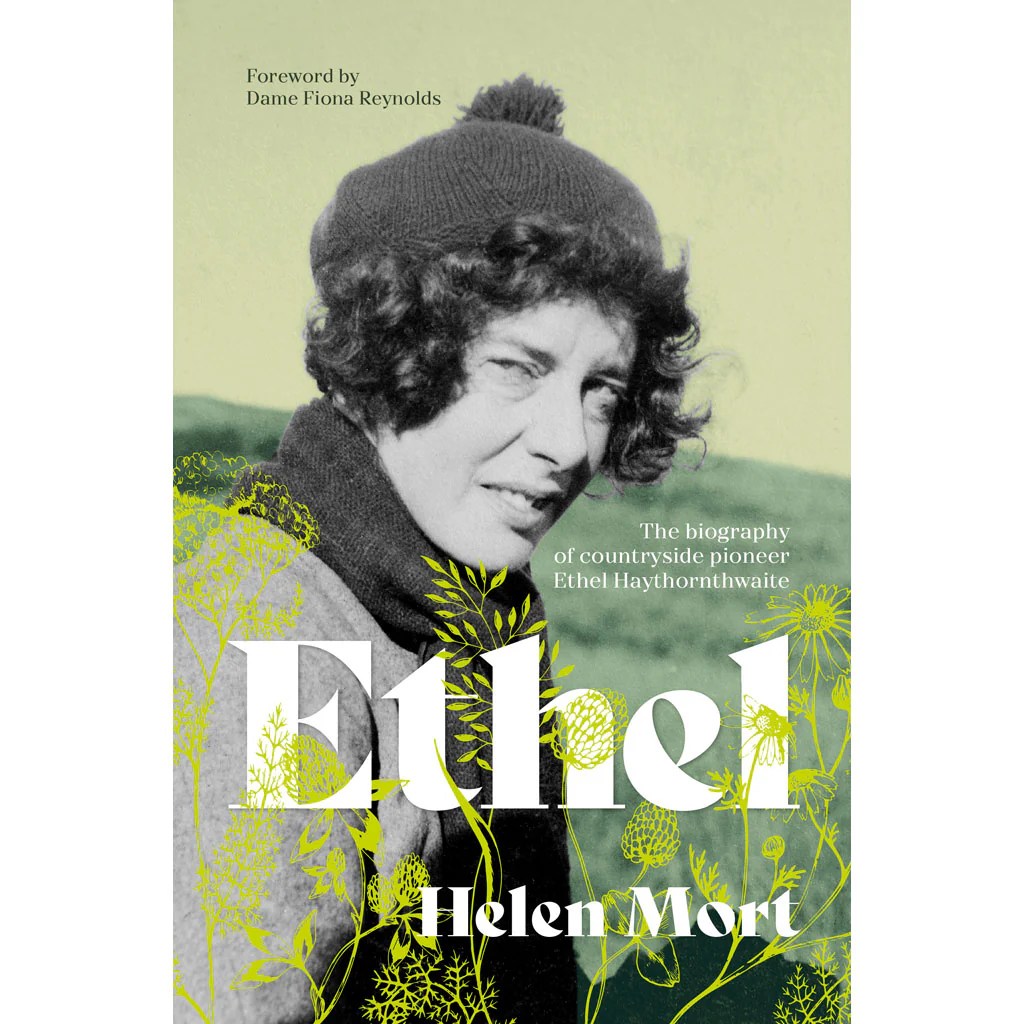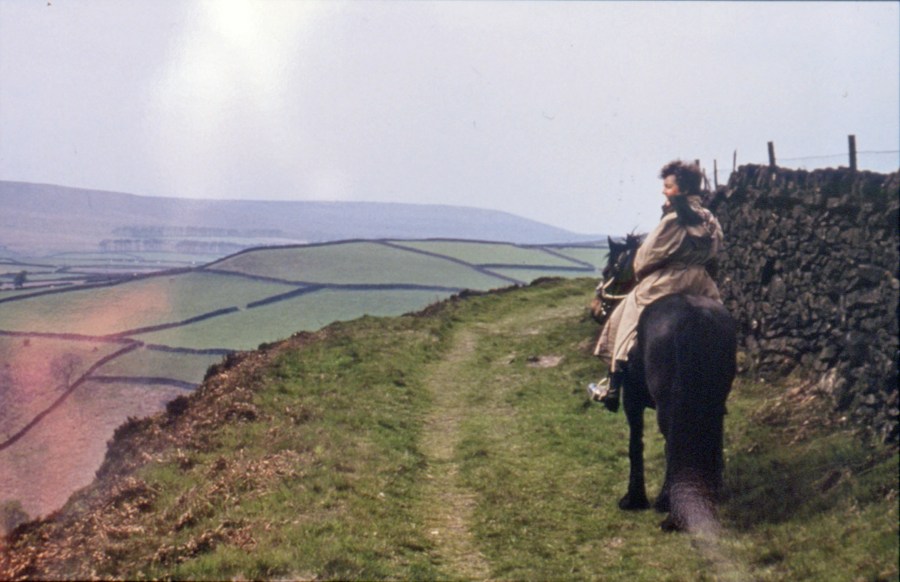The quiet activism and lost history of Ethel Haythornthwaite, without whom we arguably wouldn’t have a Peak District National Park, is brought back to life in a timely and vibrant manner by Helen Mort.
The trouble with many biographies is that they never really tell the whole story, borrowing from letters and historical archives. These publicly shared snippets of a person’s private soul can sometimes leave readers curiosities unsatiated. Helen Mort artfully dodges this dissatisfaction with her biography of Ethel Haythornthwaite, an evocative and heartfelt portrait of a complex woman.
Main image: Ethel riding her horse Bracken in her beloved ‘stone country’ © CPRE Peak District and South Yorkshire
I’ve walked many of the Ethels (hills in the Peak, mostly over 400m/1,300ft, of which there are 95) named in tribute to our titular pioneer. Yet, I’d never truly considered the connection between these mounds and the mysterious ‘Ethel’, nor is Ethel Haythornthwaite’s story celebrated across the outdoor community in the way it perhaps deserves. Her middle-class roots, dismissal of urban life, and letter-writing activism don’t make for an easily-romanticised tale of triumph. But Ethel, as Helen writes, did the work.

Ethel addressing a 1930s Ramblers’ rally for access in Winnats Pass. © CPRE Peak District and South Yorkshire
After founding the Sheffield Association for the Protection of Rural Scenery, which would later become the local branch of CPRE, The Countryside Charity, Ethel paved the way for Sheffield’s Green Belt status – England’s first – and, as the only woman on the government’s National Parks Committee, was pivotal in making the successful case for the National Parks and Access to the Countryside Act of 1949.
But this biography goes deeper than bureaucracy. Through extensive research and much contemplation of Ethel’s own words and the meanings which lie between the lines, Helen thoughtfully fills the inevitable gaps in this overlooked tale half-lost to history by writing letters to her subject. it is a clever ploy of prose but the letters to Ethel – one outdoorswoman to another – are also profoundly moving.
Helen shows Ethel to be a woman grieving lost love, wily enough to outsmart those with more cultural power than she, and in perpetual search of solace outdoors, happiest under big skies in any weather. The author does not shy away from uncomfortable attitudes of the time, some of which were expressed by Ethel herself. Helen’s narrative also rights wrongs in Ethel’s own work and writing caused by the era’s blind spots and, more importantly, makes space for other contemporary voices.

Ethel at home. © CPRE Peak District and South Yorkshire
Peppered throughout the biography are passages of beautiful nature writing. Helen, like Ethel, knows the landscape of the Peak intimately. Fans of her poetry and works of fiction – such as the captivating Black Car Burning – will revel in this. Helen has a way of observing the natural world and giving meaning to fleeting moments many of us outdoors folk experience, but perhaps are unable to pinpoint. Helen’s flair for nature writing puts those visceral, often indescribable feelings into words.
The biography also includes a full reproduction of Ethel’s long-form poem The Pride of the Peak, originally published in 1926. Indeed, the two poets’ voices bob and weave together to demonstrate the changes in attitudes, climate, and ultimately, society’s collective cultural connection with this great outdoors.

What really sets this biography apart is its grounding in modernity. It peers back into the past in order to reflect our present and share hopes for the future. This year, as CPRE Peak District and South Yorkshire celebrated its centenary, is a timely moment to ensure Ethel’s story is not lost. It serves as inspiration to us as we embark on our own challenges – some new, some familiar – to preserve the countryside.
Ethel: The biography of countryside pioneer Ethel Haythornthwaite is published by Vertebrate Publishing (£14.95, paperback)
When contributors to The Great Outdoors aren’t out walking, some like to relax with a good book. Read their outdoor book reviews and discover your next adventurous bedtime story.








